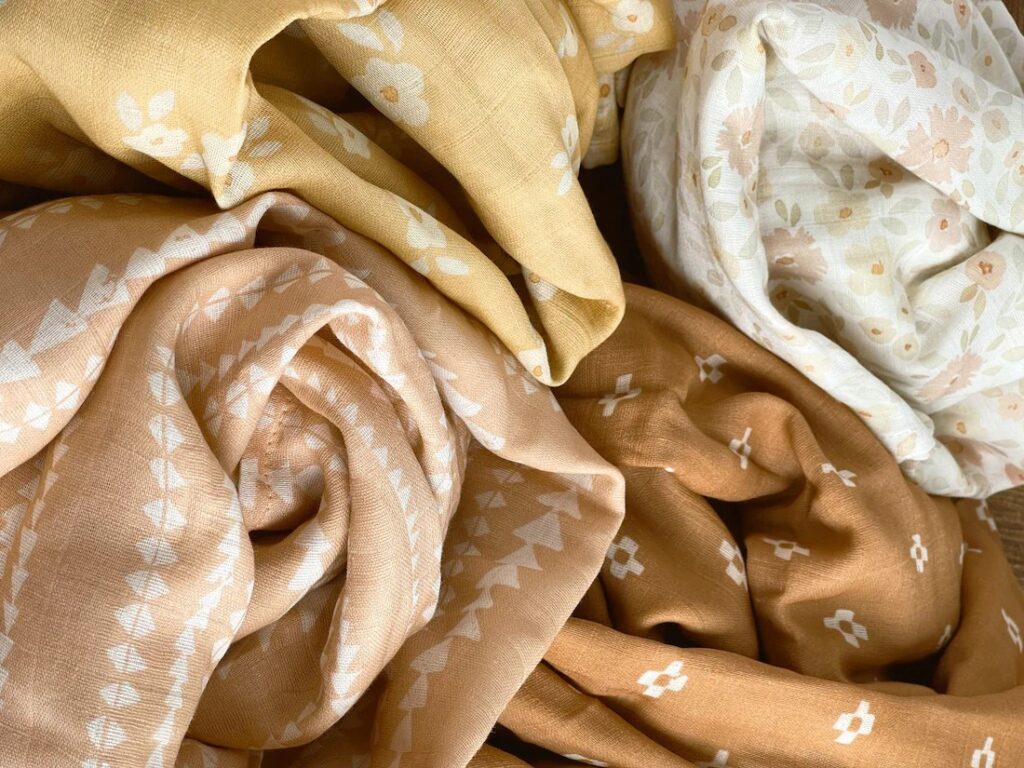Muslin blankets are a staple in many households, cherished for their softness, breathability, and versatility. However, when it comes to choosing baby blankets, it’s essential to consider not only comfort but also sustainability.
Eco-friendly muslin blankets offer a planet-friendly alternative that ensures the well-being of your baby and the environment. This article explores the benefits of eco-friendly muslin blankets and provides tips for choosing sustainable options for your little one.
What are Muslin Blankets?
Muslin is a lightweight and finely-woven cotton fabric known for its softness and breathability. Muslin blankets are commonly used for swaddling, nursing covers, stroller blankets, and more. They are gentle on sensitive baby skin and provide comfort and warmth without overheating.
Advantages of Muslin Blankets
Muslin blankets offer several advantages for babies:
- Breathability: Muslin fabric allows air to circulate, preventing overheating and ensuring your baby stays comfortable in various temperatures.
- Softness: The soft and gentle texture of muslin is soothing to delicate baby skin, making it ideal for swaddling and cuddling.
- Versatility: Muslin blankets have multiple uses, from swaddling and nursing covers to stroller blankets and playmats, making them a versatile and practical choice for parents.
Eco-Friendly Benefits
Sustainable Materials
Eco-friendly muslin blankets are made from organic cotton, which is grown without the use of synthetic pesticides, fertilizers, or genetically modified organisms (GMOs). Organic cotton cultivation promotes soil health, reduces water consumption, and minimizes environmental impact compared to conventional cotton farming practices.
Non-Toxic Dyes
Toxic chemicals and synthetic dyes commonly used in textile production can pose health risks to both humans and the environment. Eco-friendly muslin blankets are dyed using natural and non-toxic dyes derived from plants or minerals, ensuring that they are safe for your baby and environmentally friendly.
Biodegradable and Compostable
Unlike synthetic fabrics, which can take hundreds of years to decompose, muslin blankets made from organic cotton are biodegradable and compostable at the end of their lifecycle. This means that they break down naturally in the environment, reducing waste and minimizing the burden on landfills.
Tips for Choosing Sustainable Muslin Blankets
Look for Organic Certification
When shopping for muslin blankets, look for products that are certified organic by recognized organizations such as the Global Organic Textile Standard (GOTS) or the Organic Content Standard (OCS). Organic certification ensures that the cotton used in the blankets is grown and processed according to strict environmental and social criteria.
Check for Non-Toxic Dyes
Ensure that the muslin blankets are dyed using natural and non-toxic dyes, free from harmful chemicals and heavy metals. Look for certifications such as OEKO-TEX Standard 100, which verifies that the textiles are tested for harmful substances and comply with strict safety standards.
Consider Ethical Production Practices
Choose muslin blankets from brands that prioritize ethical production practices, such as fair wages, safe working conditions, and respect for workers’ rights. Look for certifications like Fair Trade or certifications from reputable organizations that ensure social responsibility throughout the supply chain.
Care and Maintenance
Follow Care Instructions
To prolong the lifespan of your eco-friendly muslin blankets, follow the care instructions provided by the manufacturer. Machine wash the blankets using eco-friendly laundry detergent in cold water and tumble dry on low heat or air dry to minimize energy consumption and preserve the fabric’s integrity.
Repurpose and Upcycle
Extend the life of your muslin blankets by repurposing them for other uses as your baby grows. Use them as lightweight throws, picnic blankets, or cleaning cloths around the house. When the blankets reach the end of their lifecycle, consider upcycling them into new products or donating them to organizations in need.
Conclusion
Choosing eco-friendly muslin blankets for your baby not only ensures comfort and safety but also contributes to a more sustainable future for the planet. By opting for blankets made from organic cotton, dyed with non-toxic dyes, and produced ethically, you can minimize your environmental footprint and support responsible manufacturing practices.
With proper care and maintenance, eco-friendly muslin blankets can accompany your baby on their journey from infancy to toddlerhood, providing warmth, comfort, and peace of mind for years to come.

